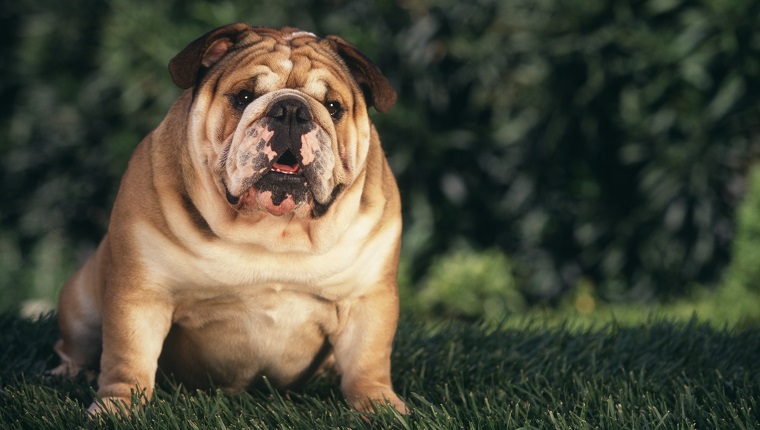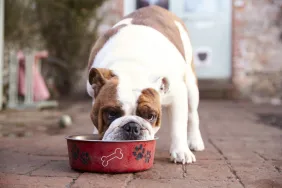If you type: “fat dog pic” into your search engine, you’ll find pictures and videos of overweight dogs that are supposed to be funny.
Not to be a buzz-kill, but morbidly obese pets don’t seem that funny to me — and I’m talking about dogs who can’t walk without difficulty because their bodies are so heavy that the joints in their legs are failing. It’s a crisis.
October 9th is National Pet Obesity Awareness Day, but the dangers of obesity are talked about so much all year long now that it’s almost overwhelming. Yet obesity is still a huge problem among our pets. Over half of the pets that veterinarians see are obese or overweight.
Certainly, our pets don’t understand the dangers of obesity. We, as pet parents, are responsible for how much our dogs eat and exercise. So if a dog becomes obese, are humans to blame? And is this really just another form of pet neglect? Should we intervene if we see such neglect?
Here’s what you should know about obesity in pets.
The Dangers Of Obesity
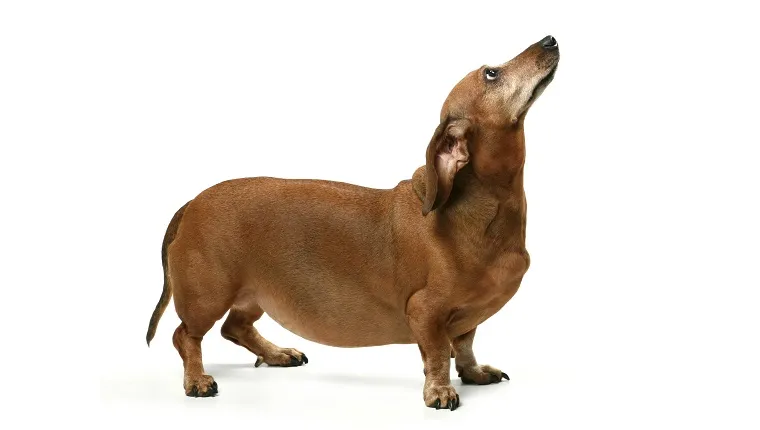
Let’s go over a few of the dangers of obesity — be it dog, cat, or human — again, just for the purpose of clarity:
- Coronary Heart Disease
- High Blood Pressure
- Stroke
- Diabetes (the often fatal type 2 kind)
We’re told that these conditions are real and that additional weight and poor health are causes.
When a human being is morbidly obese, we know that there may be factors that we can’t easily control: hormone imbalances, hereditary proneness, a lack of nutritional education, or emotional issues.
When it’s a pet, how do those issues change? The question may become: Whose lack of nutritional education or emotional problems are causing the damage? The dog’s? Or is it the human’s? Or a combination?
Pet Parents Cause Obesity In Dogs Most Of The Time
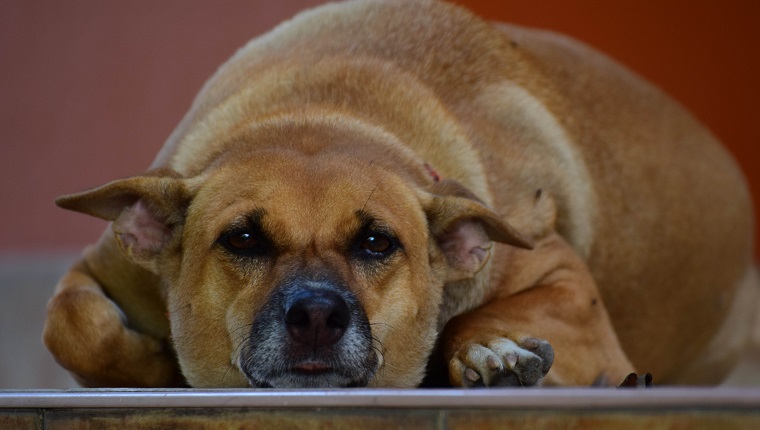
Hormone imbalances and thyroid conditions do occur in animals just like they do in humans. Veterinarians can rule out these possibilities for our pets fairly easily. They can also prescribe treatment to address these issues.
Once those issues have been ruled out, poor diet and exercise are the most likely causes of a pet’s obesity. Those factors are entirely controlled by the pet parent.
So why would a person continually feed inappropriate treats and table scraps in unhealthy amounts to their already overweight pets on purpose? Why would they, seeing that their animal is growing so very much larger than other animals of their size and breed, not institute some kind of change in the animal’s diet and exercise?
And, more importantly, is it anyone’s business but their own?
Pet experts and veterinary specialists consider the problem of pet obesity to be a nutritional disease. More than half of cats and dogs in the United States suffer from having excess weight. Vets say that some 53 percent of adult dogs and 55 percent of cats are overweight or obese.
How do we reach the humans who care for these pets? How can we educate them? Should we hold them accountable?
Are Fat Dogs Happy?
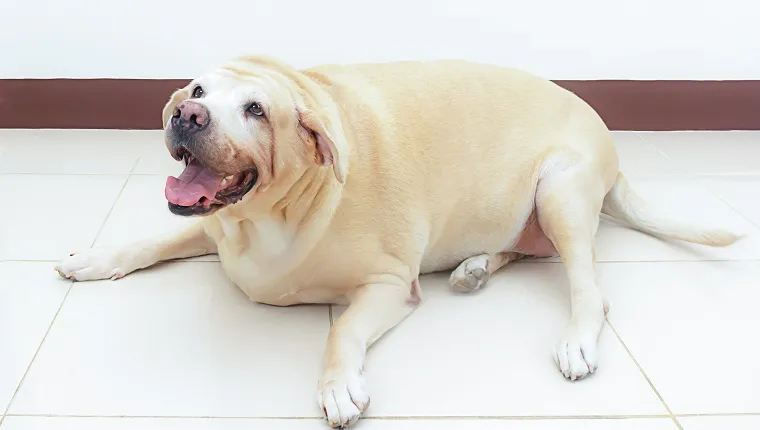
Then again, who’s to say what a happy dog or cat looks like?
If some lady’s cat is fat, not morbidly obese, but just overweight, it seems pretty harsh to consider that abuse. If someone has a “treat loving” dog, where’s the criminal negligence in exchanging a perfect check-up for some yummy Beggin’ Strips and the fun of doling them out to an eager, thankful pup?
I’ve gladly exchanged my perfect check-up and my perfect body for barbecued ribs, bread, bread, bread, and wine.
Common sense tells us that when a normally ambulatory being is unable to walk because of their size and weight, they are too big, and it’s not healthy. Some animal rights advocates are trying to argue that extreme pet obesity is negligent to the point of being criminal, but how do you measure those standards?
Certain breeds of dog and cat are prone to weight gain but, as an example, should we target individuals who have those breeds? Do we have the right to judge and even penalize people with fat cats or dogs?
When Should We Intervene?

I suppose, inasmuch as people are people, we must have our opinions about the size and fitness of one another’s pets.
Obviously, there are extreme circumstances in which the weight of the animal exceeds their ability to negotiate normal, physical activity. But the question is: When do we ask the authorities to step in and, more importantly, should we?
Historically, human beings, parents, pet lovers, and even politicians have been subject to the scrutiny of their neighbors, constituents, and friends. Today, you may find that thousands of people are sharing your “story” with like-minded individuals.
The shocking truth may be that if you’ve neglected your pets’ health, your story may go viral! We may not need the intervention of the law to put an end to pet obesity. Facebook and Twitter might shame pet parents out of their bad habits!
Is shame really a good method of bringing about positive change when all else fails? It’s hard to say. In the meantime, we should all work together to educate and inform to hopefully address the problem of pet obesity and save animals’ lives.
Do you think pet obesity is a form of neglect? How do you think we can get pet parents to change bad habits and take their animals’ health seriously? Let us know in the comments below!
Related Articles:
